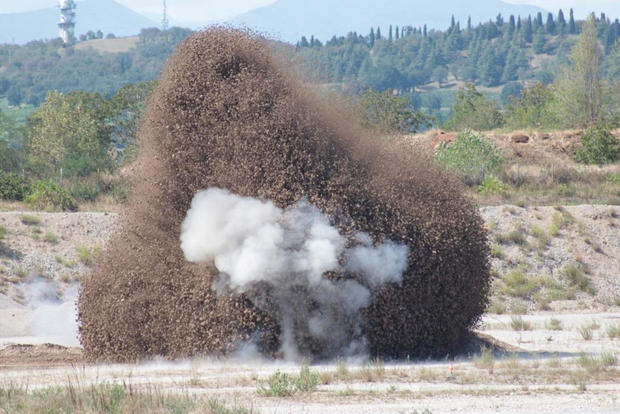Italy’s longest river, Po, is a major resource for the entire country, but this summer, it’s been running dry as it faces its worst drought in 70 years. Water levels have gotten so low that a once-submerged artifact has been revealed – a 1,000-pound bomb from World War II. The bomb was unexploded and found on July 25 near Borgo Virgilio. Colonel Marco Nasi told Reuters that fisherman found the bomb along the bank and that it was discovered because of the decrease in water levels from the drought.
According to Reuters, the bomb was manufactured in the U.S. and the army said it contained 530 pounds of explosive. It was destroyed about 30 miles away from where it was found.
Over the weekend, the army told Reuters that roughly 3,000 people living nearby were evacuated so that military experts could safely defuse the bomb in a controlled explosion on Sunday. The local airspace, waterway, railway line and state road all had to be temporarily closed for the procedure. “At first, some of the inhabitants said they would not move, but in the last few days, we think we have persuaded everyone,” Borgo Virgilio’s mayor Francesco Aporti told Reuters. Aporti said that if people continued to refuse, officials would not have detonated the bomb at that time.
This isn’t the first historic artifact to be discovered in the barren river. In June, a 164-foot-long barge that transported wood during World War II surfaced in the river. The ship sank in 1943 and is usually covered by the water.
Extreme heat and too little rainfall has been disastrous for the Po River and its basin, which covers nearly a quarter of Italy’s territory and provides about one-third of the country’s agricultural production. In July, the nation declared a state of emergency for Po’s surrounding areas, as farmers deal with destroyed crops and many surrounding areas face water shortages.
This article was first published in CBS News . All contents and images are copyright to their respective owners and sources.












